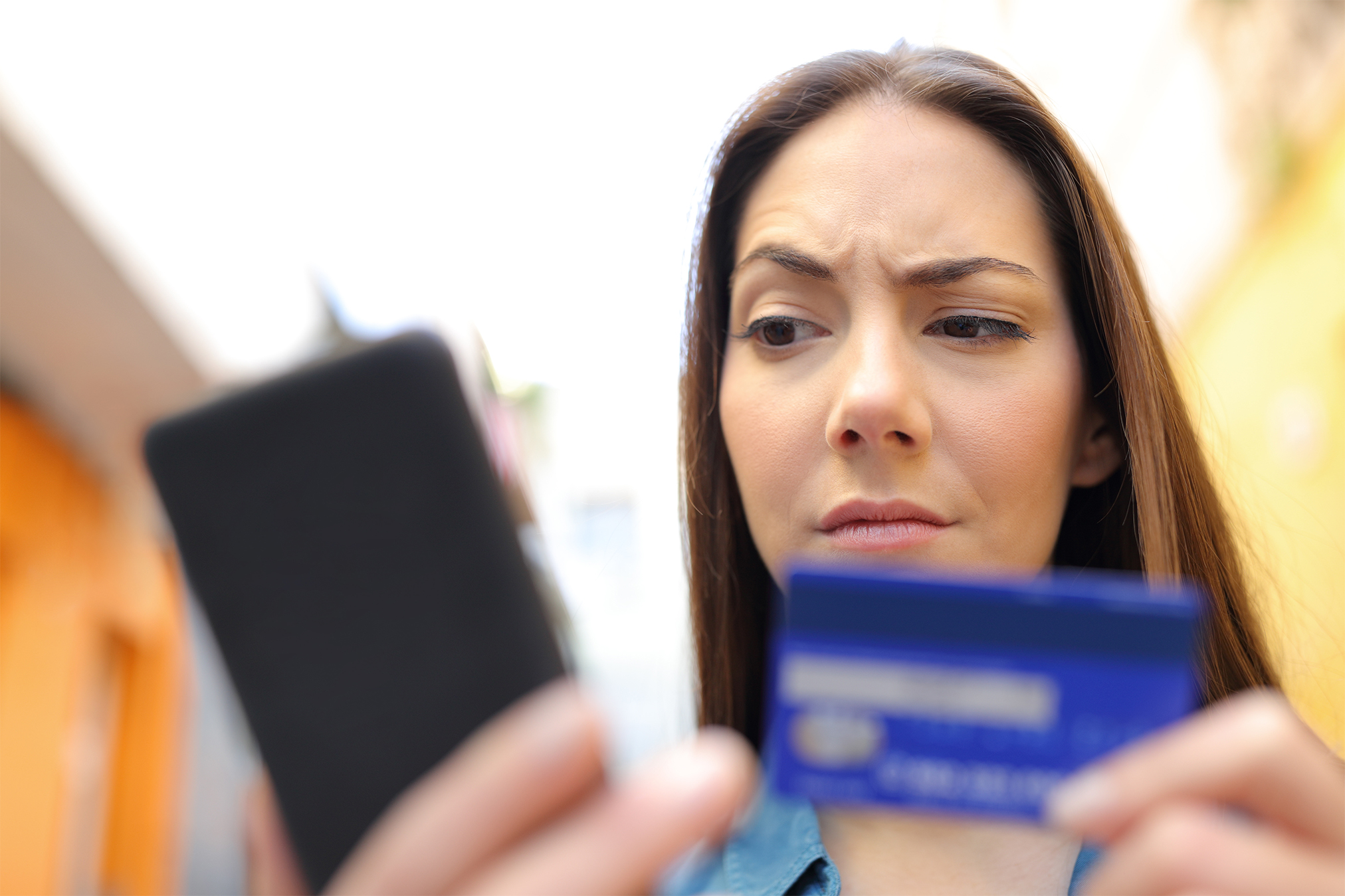How to Prevent Credit Card Fraud

Credit cards are a useful tool in your wallet, but be careful because credit card fraud is one of the most common forms of identity theft—making up roughly 28% of cases reported to the Federal Trade Common (FTC).
It’s important to arm yourself with plenty of information on how to bank securely and prevent credit card fraud, so let’s discuss how best to protect yourself and what you need to do if you notice signs of fraud on your credit card.
What Is Credit Card Fraud?
Credit card fraud is any kind of theft or fraud that involves the unauthorized use of your credit card or account information. Criminals can take advantage of your credit card in different ways.
Typically, they’ve either physically stolen your credit card or they’ve stolen your credit card information. The various types of credit card fraud can be broken into four main areas:
- Lost or stolen cards that are used without your permission.
- Credit card skimming: the card is cloned or copied with a special swipe machine to duplicate the card. For example, criminals illegally install credit card readers inside ATMs or pay stations at gas pumps that produce a copy of your card.
- “Card-Not-Present” fraud: sensitive information like your card number, name, date of birth, or address is stolen, usually from online shopping or email scams. The criminals then sell your information or use it themselves to make purchases on the internet or by the phone.
- Application fraud: the thieves take your name and information to apply for a new credit card, which they then use to make purchases.
How to Prevent Credit Card Fraud
There’s never a guarantee you can avoid becoming a victim of fraud, so setting up email or text alerts for all credit card transactions will keep you on the pulse of your account. Therefore, if a fraudulent charge is made, you’ll see it right away and can report it immediately.
Oftentimes, someone committing credit card fraud will make a small purchase in the hopes that it will go undetected, then move on to buy more expensive items later. But if you sign up for alerts, you’ll be able to catch a breach quickly.
Here are some additional steps to take to arm yourself against possible attempts:
Use Mobile or Online Banking
Mobile banking with Partners Financial FCU is free for members and is a helpful fraud-fighting tool. Mobile banking lets you check your account for unusual activity anytime you want to—right from your phone or computer. Additionally, mobile check deposits mean fewer trips to the ATM, where your card could potentially be cloned.
Keep Track of Your Cards
Be mindful about where and how you use your credit cards. For example, if you’re paying a restaurant bill and the staff takes your card to run it through a machine that’s in the back of the room, someone could have written down your card information. You wouldn’t know it though, because the card was out of your sight.
Avoid Phishing Scams
Be on the alert for phishing scams, which are email or internet scams that try to trick you into giving up your credit card details. In terms of emails, avoid clicking on any link in an email that’s asking you for credit card or personal information.
With regards to websites, you can spot more secure sites by looking at the start of the web address. Ones that start “https” are safer than the ones that start “http.” The “s” stands for secure and means that the site has encryption features to keep your information safe.
Additionally. look for a lock icon near your browser’s location field. This means the website’s server is encrypted, which will prevent someone from eavesdropping or stealing communication between your browser and the website’s server.
Set Up Travel Alerts
If you’re planning to be somewhere outside of your hometown, let us know! By giving us a heads up, we can be on the lookout for any unusual spending patterns in your location.
This helps us to avoid anything on our end that could inconvenience you, such as freezing your account. Again, we still recommend monitoring your accounts, especially when traveling or when you use the card to withdraw cash from an ATM.
Stay Safe With a Partners Financial Premium Checking Account!
You now understand what credit card fraud is and a couple of tips to avoid it. With Partners Financial, you have peace of mind knowing our Premium Checking account offers top-tier benefits to protect your finances.
With features such as ID Theft recovery and credit monitoring, we’ll alert you when suspicious activity happens on any of your accounts. Click below to learn more about member safety benefits and sign up with us today!

 Member Resources
Member Resources News & Information
News & Information Privacy Policy
Privacy Policy Fees
Fees Branch Holiday Schedule
Branch Holiday Schedule
